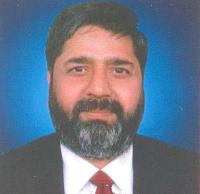
Jammu and Kashmir is now open for investment from outside the Union Territory , making land and other resources available to the investors in an attempt to achieve the two objectives : transforming the economy of the region and to build stronger bridges between the place and the rest of the country in a reinvigorated fashion in the post Article 370 era. This is the official claim .
For Jammu and Kashmir that had remained closed for the entry of the outsiders to investment in the place because of the legal curbs in purchasing the land and building infrastructure , this offered a grand opportunity to acquire a profile of economic destination for big business houses, and as a result enrich the economy and generate employment .
This became obvious when J&K held its Real Estate Summit in Jammu, the winter capital city of J&K, on December 27. Thirty-nine MoUs or memorandum understanding were signed between the real estate developers and the UT government worth Rs. 18,300 crore on the day, triggering hope that the things will start changing in J&K.
The MoUs were signed in the residential, industrial , hospitality , entertainment and finance .These invoked the involvement of the country’s best-known groups like Signature Global ,Samyak Group, Raunak Group Hiranandani Constructions NBCC, Chalet Hotels . Raheja Developers, Goel Ganga , GHP Group and Shree Naman groups.
The government-patronised event was a clear signal that things will change in J&K , despite stiff resistance from some quarters. The government , it seems , is determined to bring in the investment to J&K at any cost , perhaps to integrate the land of the region and the money from outside to build the infrastructure , which looks attractive to the people and charms them into accepting it as a march in their journey of hitherto unseen progress and prosperity .That’s why the big names in the country showed up at the event , which mesmerized the common who watched it and later read about it .
This summit woke up Jammu to the new realities that there is a world outside their realm of thinking . Jammu, in particular, is interested in the investment from outside , because it thinks that its land , lying barren in several parts of the region, can be utilized in development, which, in turn, will accrue benefits to the masses .
Jammu and Kashmir that has been a politically unstable place since 1947 has remained development -deficient state , now UT . The current stability , which is being sold to the world outside is due to the central rule . There is lack of the indigenous political connect with the economic activities that are being undertaken , and so much so , even the local business institutions have not been taken into account . This is the basic flaw in this policy.
The politics in Jammu and Kashmir , whether it was a state or now it is the union territory , is not like any other state /UT in the country . The narratives change , and Kashmir is aware that despite the high-stakes of the world involved in the Indian economy , the place has its own geo-strategic position . The economy could not gain what it should have because of the external factors , some of which still exist; Pakistan has set its eyes on the place, and being Muslim-majority , it is having its own connect with the Islamic world .
That’s why the protests have already started in Kashmir over the real estate ambitions of the developers being unfolded in J&K. Surprisingly , these protests have been staged by the parties that are seen to be close to the Union Government, and foreseen as BJP’s ally in the post -poll scenario .
With government removing all hurdles, enabling the investors to buy all sorts of land, including the agricultural land, and doing away with the domicile clause for the purchase of the land and building immovable assets , the political turn of events can put brakes on these developments . This is essentially because the locals are not on board . This is the biggest speed breaker.
Arun Joshi is a Senior Journalist, Political Analyst based in Jammu and Kashmir. He has authored four books, including, “Eyewitness Kashmir: Teetering on Nuclear War”. He has worked with Hindustan Times, The Times of India, The Indian Express and The Tribune, and visited several countries to deliver lectures on Kashmir issue and international affairs.
Views expressed are personal

